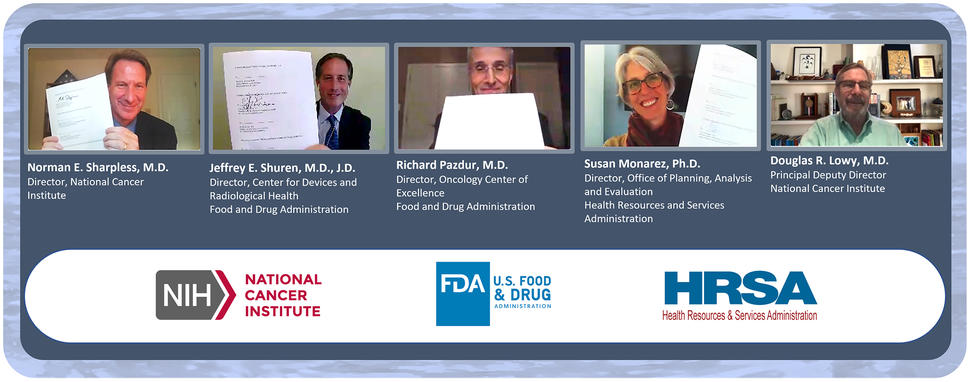The effect of cancer on American life is enormous. On average, 1.6 million individuals are diagnosed with cancer every year in the United States. However, some regions in the United States fare worse than others. Relative to residents of more urban centers, rural Americans face serious disadvantages related to socioeconomic deprivation, which limit their access to quality healthcare and multiply cancer risk factors.
Early detection and screening vastly improve patient outcomes by allowing care to be provided at early stages. Knowing this and wanting to explore deeper, the National Cancer Institute (NCI) held a series of workshops in 2019 on cancer detection and screening. Those workshops made evident that the NCI alone could not design, develop, and maintain comprehensive cancer diagnostic platforms that could be brought closer to patients than ever before.
Formation of the Task Force
To address this, a new interagency task force was developed, charged to work with the public and private sectors to begin identifying gaps and opportunities in cancer diagnostics. This Task Force, the Cancer Diagnostic Devices Interagency Task Force [CD2 Interagency Task Force], includes staff from:
- NCI
- Food and Drug Administration (FDA)
- Health Resources and Services Administration (HRSA)
- Centers for Medicare & Medicaid Services (CMS)
The task Force focuses on near-patient use and address unmet needs among geographically isolated, medically underserved, and otherwise vulnerable communities. In October 2020, the Task Force convened a workshop with representatives from academia, industry, and several other federal agencies that led to a publication of findings and recommendations.
The activities of this Task Force support the public health by assuring that patients and providers have timely and continuous access to safe, effective, and high-quality tests for cancer diagnostics. Through this Task Force, each agency is able to leverage complementary missions, capabilities, resources, and expertise to gain a deeper understanding of cancer disparities and formulate multipronged solutions to address them.
Memorandum of Understanding
To cement the long-term support of the Task Force, the NCI, FDA and HRSA signed a Memorandum of Understanding, with the possibility of others joining in the future. This Memorandum of Understanding fosters research and education, and the exchange of ideas and information, all in the name of developing and validating cancer screening and diagnostic devices for near-patient use, particularly benefitting rural and other medically underserved communities.
